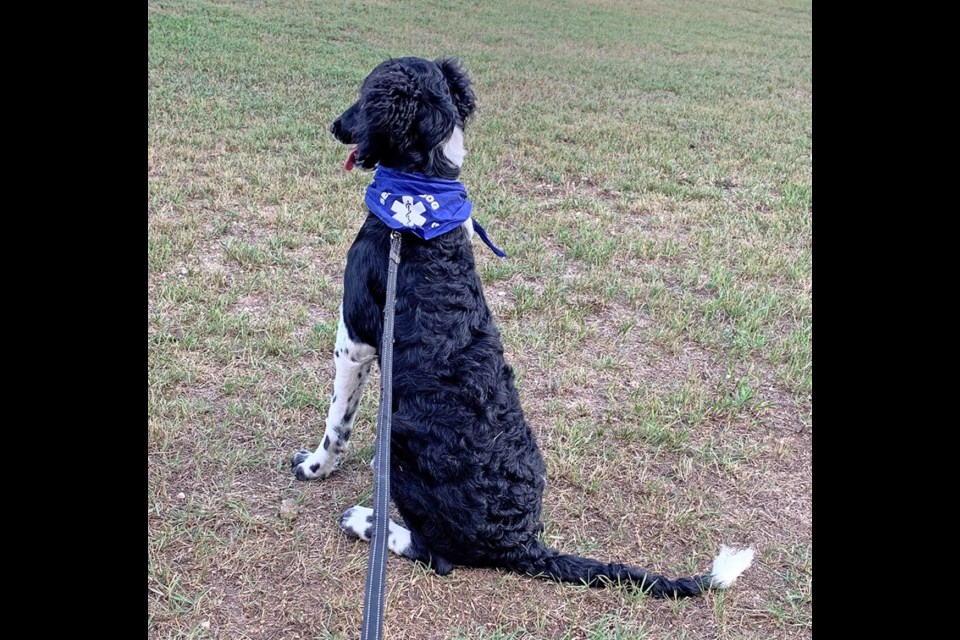Have you ever seen a Veteran’s Service Dog? Did you wonder why the person had a service dog or what the dog’s job was? I will speak of the advantages of a service dog from my experience.
Research has shown that provide many positive health benefits for their veterans with Post Traumatic Stress Disorder (PTSD). Service dogs are trained to do specific tasks to meet the needs of their humans. Some remind their owners when to take their medications. Others help owners with balance issues by being constantly at their side. If confined spaces, such as elevators are a challenge, the service dog will place their body between their owner and other people to maintain their precious personal space.
Through the support of their canine, veterans learn to be in public. A recent study revealed that service dogs helped veterans feel safe by reducing PTSD symptoms including hypervigilance and moderate intrusive thoughts. Service dogs learn to read their owner’s signs of anxiety. They will try to get their owner’s attention through reassuring snout nudges, resting their head on their owner’s lap, giving a paw or standing beside their owner. By focussing on the service dog, the veteran is brought back to the present. This helps the veterans with their emotional regulation. With each public outing, they build team trust and the handler builds self-confidence. In time, social interactions will increase.
Dogs need exercise. They need regular bathroom outings and walks to remain fit and to practise their skills. This encourages veterans to be outside more than they would have been before owning a service dog. Weather becomes irrelevant as they know and want to meet the needs of their partner. Fresh air, sunshine and walking are good for mental and physical health, as is talking to other dog owners encountered during walks. Together you develop a routine which helps regulate your life.
If the veteran suffers from nightmares, the service dog sleeps with them. As their bond
develops, A veteran who was once terrified to go to sleep, learns it is safe to sleep with their dog by their side.
Dogs like to play. Play is a good way to connect, learn about each other, as well as exercise. Play brings both joy and often laughter. Play can bring the child forth in the veteran, lightening the weight of stress and trauma.
The service dog provides spiritual support for the veteran. As their relationship grows, the veteran can feel hope, that life is better, thanks to their dog. The veteran will, over time, increase their participation in meaningful daily activities.
In sum, the veteran’s psychological health improves thanks to the constant support of the service dog. The unconditional love of the service dog opens the veteran’s heart to trust and love. This often spills over to the other significant people in their lives, as relationships improve and anger subsides. Dogs like physical contact and the veteran learns to also want, need and appreciate the displays of love offered by their service dog.
Roger Caras says it best. “Dogs are not our whole life but they make our life whole.”
Many Veterans that are blessed to have a service dog will concur.
As Remembrance Day approaches, think of the veterans and serving first responders. Many suffer from PTSD. They all would benefit from a service dog. Support the Royal Canadian Legion or any other organization that provides support to veterans.




